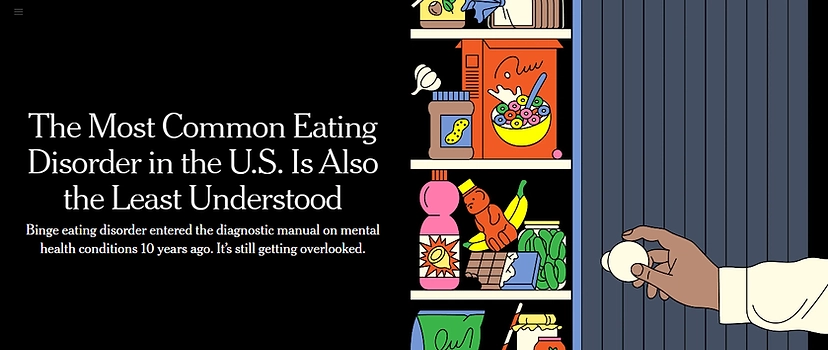
Laura Edelbacher
This is a synopsis of this NYTimes article by Written by Dani Blum. who is a reporter for Well at The New York Times, focused on news and trends.
Binge eating disorder (BED) is a common and serious condition that affects millions of people worldwide. It is characterized by recurrent episodes of eating large amounts of food in a short period of time, often accompanied by feelings of guilt, shame, and distress.
But what if we look at BED from a different perspective? What if we consider the possibility that some people may have a food addiction, similar to how others may have an addiction to drugs, alcohol, or gambling?
Food addiction is a term that some researchers use to describe a compulsive or uncontrollable urge to eat certain foods that do not relate to hunger or nutritional needs. These foods are usually high in fat, sugar, or salt, and they trigger pleasurable chemicals in the brain that act as a reward. Over time, these foods may hijack the brain’s reward system and make it harder for people to stop eating them, even when they cause negative consequences for their health, well-being, and relationships.
Food addiction is not yet a formal diagnosis in the DSM-5, but there is growing evidence that it may be a valid and useful concept for understanding and treating some cases of BED. For example, studies have found that up to 20% of people with BED may meet the criteria for food addiction, based on a scale called the Yale Food Addiction Scale (YFAS). These people tend to have more severe symptoms, higher body mass index (BMI), and lower quality of life than those who do not have food addiction.
Moreover, some treatments that target addiction mechanisms and some lifestyle changes, such as avoiding trigger foods, practicing mindful eating, seeking social support, and engaging in physical activity, may help people cope with their food addiction and improve their overall health.
By recognizing the addictive potential of certain foods and how they affect the brain and behavior, we may be able to offer more tailored and effective interventions for people who struggle with food addiction, starting with abstaining from trigger foods that contain sugar, grains and highly processed ingredients.